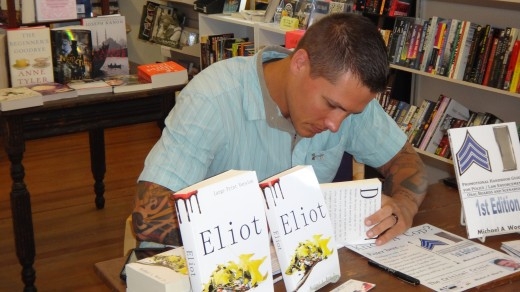Michael Wood, ex-Baltimore officer, tweets about alleged police brutality.
The tweets that followed were a disturbing affirmation of some of the worst practices police are accused of participating in, and quickly garnered a lot of attention. As word spread about Wood’s allegations, the Baltimore Police Department issued a statement acknowledging the allegations, and that Wood served with the department. “We hope that during his time as both a sworn member and as a sergeant with supervisory obligations, that Mr. Wood reported these disturbing allegations at the time of their occurrence,” the statement said. “If he did not, we strongly encourage him to do so now, so that our Internal Affairs Division can begin an immediate investigation.”
Some Twitter users told Wood they were grateful that he was shedding light on the darkest corners of policing, while others questioned whether or not he was telling the truth and argued he was betraying fellow officers who don’t participate in the kinds of abuse he described.
https://twitter.com/MichaelAWoodJr/status/613724032157003777
Wood told Radley Balko at The Washington Post that he learned to adopt an “us vs. them” mentality early on in his policing career: “It’s ingrained in you that this is a war, and if someone isn’t wearing a uniform, they’re the enemy,” said Wood. “It just becomes part of who you are, of how you do your job. And when all you’re doing is responding to calls, you’re only seeing the people in these neighborhoods when there’s conflict. So you start to assume that conflict is all there is. Just bad people doing bad things.”
https://twitter.com/MichaelAWoodJr/status/613723695782227968
His description of the role he played in the police department’s “war” is a reminder of the militarization of police forces the U.S. witnessed after Michael Brown’s death in Ferguson last summer, and Gray’s death in Baltimore in April. That comment, along with many of his tweets, illustrate several broader concerns about policing in the U.S. that have gained increasing attention following the deaths of black citizens at the hands of officers in cities around the country. On Friday, Wood continued to tweet his experiences, recalling a department driven by numbers and quotas rather than an actual reduction in crime.
https://twitter.com/MichaelAWoodJr/status/614455792687681536
Wood also pointed out how criminal defendants are often pushed to plead guilty, or face a lengthy trial and potentially a longer sentence.
https://twitter.com/MichaelAWoodJr/status/614079191215140869
Court-appointed public defenders who are short on time and attempting to serve indigent defendants quickly can fall into this pattern of “meeting and pleading” their clients, encouraging them to enter a guilty plea rather than pursue a lengthy trial. Aggressively policing low-level crimes just to meet quotas, as described by Wood, puts more pressure on already over-burdened court systems in which attorneys have mere minutes to meet with their clients and make life-changing decisions about their cases.
At a time in the U.S. when race relations between police and communities, as well as average citizens, have taken a central role, Wood’s comments about perpetuating a cycle of locking up young black men struck a familiar chord.
https://twitter.com/MichaelAWoodJr/status/613726152310435840
Baltimore Police Commissioner Anthony W. Batts echoed some of Wood’s comments in a foreword he penned for a report released Thursday about how to reduce racial disparities in local jails. From his stance higher up in the policing ranks, Batts’ seemed to share some of Wood’s concerns, pointing out that if current incarceration trends continue, one in three black men born today will be behind bars at some point in their life.
“Not only do we live in an era of reduced crime, we also live in an era of excessive incarceration,” Batts wrote. “We lock up too many—especially people of color—for too long, without a clear public safety rationale.”
Wood’s many stories of the behavior of some officers in the Baltimore Police Department make it clear why trust between police and communities is in need of repair. The fact that a voice like Batts’ from the top of the chain has emerged with a call for change at the same time as Wood’s tirade suggests there is a strong will to reform policing, from the people who know it best.
Agencies/Canadajournal
 Canada Journal – News of the World Articles and videos to bring you the biggest Canadian news stories from across the country every day
Canada Journal – News of the World Articles and videos to bring you the biggest Canadian news stories from across the country every day



